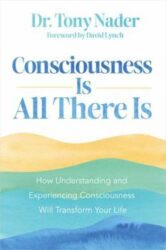Too Stressed to Function?

According to a 2022 poll conducted among 3,192 American adults for the American Psychological Association, 27% of us report that we are too stressed to function on most days.
How stress affects your life depends on its intensity and duration—and what measures you take to avert it and recover from it.
Why are adults in the U.S. so stressed out? According to coverage of the poll, the majority of adults said their stress was due to problems in our society such as the political climate, rather than to personal concerns such as health, job, or family. In the last month, 76% of adults reported they had experienced at least one symptom of ill health due to stress.
If stress is dominating your personal experience, it can be countered before it becomes dangerous to your health and well-being.
The role of cortisol
When something overwhelms us, the “fight-or-flight” response creates physical reactions most people associate with stress. These are usually an increased heart rate, heightened senses, a deeper intake of oxygen, and a rush of adrenaline. Cortisol is released—a hormone that helps restore energy that was lost in the response. After the threat or stressful event is over, cortisol drops, and the body resumes balance.
Cortisol, in moderation, is perfectly normal, natural, and healthy. As well as restoring balance to the body after a stressful event, cortisol helps regulate blood sugar levels in cells. It has value in the brain’s hippocampus, where memories are stored and processed.
Over time, repeated perceptions of mental, physical, or emotional danger can cause chronic stress and can easily lead to sustained health issues. Having chronic stress means the body makes more cortisol than it can release.
Researchers have shown that chronic stress impairs brain function in multiple ways: it can disrupt synapse regulation (resulting in cognitive impairment and the loss of the ability to interact with others), kill brain cells, and shrinkthe prefrontal cortex (the area of the brain responsible for decision making, judgment, learning, memory, and learning).
Stress and heart disease
If stress accumulates, you may compromise your heart health. Chronic stress wreaks havoc in the body, whether in the form of greater insulin resistance, weight gain, higher blood pressure, or full-blown heart disease. Coronary Heart Disease—the most common type of heart disease—is the #1 cause of death of women in the United States.
Reducing risk factors—such as stress—is the American Heart Association’s preferred approach. According to a 2013 AHA statement, Transcendental Meditation (TM) is the only meditation practice shown to reduce high blood pressure and may be considered in clinical practice for the prevention and treatment of hypertension.
TM reduces and averts stress
“No other ‘stress management technique’ has anywhere close to this amount of hard data in support of its claims to reduce stress.”—Norman Rosenthal, M.D., Georgetown Medical School, previously senior researcher at National Institutes of Mental Health
You do not have to live with the debilitating consequences of stress. Here are three scientifically validated reasons:
1. The Transcendental Meditation technique produces over twice the depth of stress reduction as does ordinary eyes-closed rest.

2. A 2019 study shows that the TM technique reduces cortisol

3. Research published in Psychosomatic Medicine shows Transcendental Meditation enables you to recover more quickly from stress.

How does it work?
The physiological response during TM is the opposite of your body’s stress response. For twenty minutes twice daily, the mind settles down, experiencing quieter, subtler levels of the thinking process. Correspondingly, the body settles into a state of profound rest, much deeper than ordinary relaxation. This deep, healing rest is what allows accumulated stress to dissolve; studies show that the body’s natural balance is restored and its resilience to further stress increases.
Don’t wait until you’re so stressed that you become dysfunctional. But even if you are, it’s not too late. Learning the Transcendental Meditation technique will give your mental and physical health the support they need.
TM is easy to learn and do: Speak with a certified TM teacher near you
About the Authors
Maribeth Flood M.S. RN, ARNP is a Board Certified Mental Health Nurse Practioner in Olympia Washington
Janet Hoffman is the executive director of TM for Women Professionals in the USA





